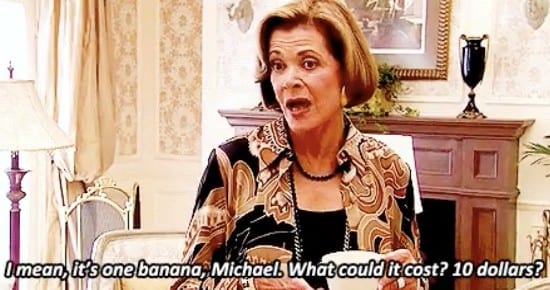• “There are so many myths about work that hurt us,” Erik Loomis writes, discussing Jake Rosenfeld’s study finding that “The vast majority of U.S. workers say the quality of their work is the No. 1 factor determining their pay.”
That’s very, very wrong. For the vast majority of U.S. workers, the quality of their work is not among the Top 10 factors determining their pay. If you’re Mike Trout or Mookie Betts or Jacob deGrom, then maybe your quality of work is a major factor in what you’re paid. But for most American workers, it really really isn’t.
Part of the reason for this confused response to Rosenfeld’s study was the framing of his survey question. He writes:
I presented respondents with a number of factors that might influence pay, including seniority, experience, education and individual performance. Two-thirds of the workers said individual performance was a very important determinant of pay — a far higher percentage than for any other factor — and another 19% said it was somewhat important.
Those are among the possible “factors that might influence pay,” but they’re only a tiny subset of such factors. Some other factors that survey respondents were not asked about:
- monopsony/monopoly power in wage markets
- capricioius, arbitrary whims of wealthy owners
- employer is massively indebted to vulture capitalists
- corporate leadership’s lack of understanding of the job
- company is aggressively experimenting with how few people it can employ to produce as shoddy a product as possible and still have people keep buying it
- idiot shareholders who think lower labor costs are always better
- pride, greed, lust, envy, gluttony, wrath, and sloth
Include options like that and you might get different answers. Exclude options like that and the survey isn’t so much a measurement as it is a tool for reinforcing harmful myths and for stunting imagination.
For the vast majority of American workers doing quality individual work, that quality work is done despite the level of pay, not because of it.
See earlier: “Playoffs and rocking chairs.”
• The greatest obstacle to offshore wind in America is that it is frequently opposed by obscenely wealthy, litigious people who fear that it will ruin the binocular-aided views from the windows of their coastal summer homes.
The bad news is that these opponents of renewable energy products have a great deal of money and, therefore, a disproportionate amount of political power. The good news is that they’re odious super-wealthy people and no one likes them. They may be extremely well-funded, but they’re incapable of winning public sympathy or hiding the many ways their extravagant wealth makes them clueless about real life. They can write huge checks hiring an army of lawyers and PR professionals to spin this for them, but at the end of the day they always come across like this:

• Jonathan Krohn and Sarah Pulliam Bailey explore some of the unhealthy aspects of white evangelical culture that shaped the mass-shooter who killed eight people near Atlanta this week, “Atlanta shooting suspect was a patient at evangelical treatment center close to first targeted spa” (WaPo article, paywall/story limit, etc.). This includes a look at the “treatment center” where the apparent shooter went for his alleged “sex addiction.”
In addition to its work with patients on “sex addiction,” HopeQuest was once a hot spot for what some call “conversion therapy” and “ex-gay” rehabilitation. The founder and creator of HopeQuest, Roy Blankenship, was once considered one of the nation’s foremost conversion therapists.
Blankenship considered himself “ex-gay” and served on the board of the “ex-gay” Exodus International group, which was disbanded in 2013. After 22 years, Blankenship retired as chair of the board at HopeQuest in December 2018. He renounced conversion therapy and publicly came out as gay the following year.
The only difference between Blankenship’s story and that of every other now ex-ex-gay counselor pushing “conversion therapy” is that it took him 22 years to admit it was a hurtful sham. He put himself through a lot of pain over those two decades, but our sympathy for that is constrained by the horrifying amount of unnecessary pain he put other people through during those many years.
• This is a doozy of a story: “The Arrest of an Ex–Florida State Senator Hints at a Broader Dark-Money Scheme.” Sleazy rat-f–king, shadowy shell companies with untraceable money, digital blackface, cynical contempt for voters, and a lawmaker who “hired a Hooters calendar girl and a Playboy model to work as consultants.”
You know, Republicans.
• That top item had me humming this Mark Heard classic, which also provides the title for this post.
This is Rodney Crowell’s version, which I like too.
The first thing I ever got paid to write was a review of Second Hand (for The Other Side), which came out 30 years ago. There’s not a bad song on that album, and more than one great one.












